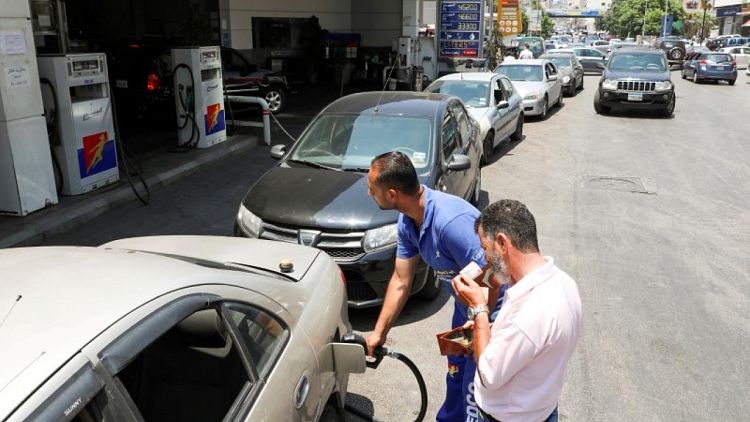By Nafisa Eltahir and Tom Perry
BEIRUT -The Lebanese government will discuss a law on Thursday allowing the central bank to use its mandatory reserve to keep subsidising fuel imports after the bank decided to halt a subsidy that has drained its coffers, a ministerial source said.
The government attacked governor Riad Salameh over the decision announced on Wednesday, calling it a unilateral move that would have serious consequences as Lebanon grapples with a crippling financial meltdown.
The central bank defended its decision, saying it told the government a year ago that legislation would be needed to use the mandatory reserve, a portion of deposits that must be preserved by law.
A loss of fuel subsidies would open a new phase in the financial crisis that has cut the value of Lebanon's currency by more than 90% since 2019 and thrown more than half the population into poverty.
The episode captured the failure of the ruling elite to set policies to get Lebanon out of the worst since the 1975-90 civil war, even as supplies of fuel and medicine have run out.
The decision triggered scattered protests, though fuel prices were unchanged on Thursday and many petrol stations shut.
"They made us lose everything in Lebanon: no fuel, no electricity, no water, nothing. House rents now cost millions. Where should we go from here?” said Hussein Ibrahim, who was protesting against the decision in Sidon.
President Michel Aoun summoned Salameh to the presidential palace for a meeting at which the governor refused to back down, saying use of the mandatory reserve required legislation, the ministerial source said.
This would be discussed at an emergency meeting of Prime Minister Hassan Diab's caretaker cabinet on Thursday, the source said.
Diab said he was opposed to subsidies being ended before an alternative was on offer. Progress was being made towards rolling out a prepaid cash card for the poor and the decision could have waited until it was available.
"It is a decision that contravenes the law," he said on Twitter, referring to the June law establishing the cards.
"Its damages are much greater than the gains of protecting the mandatory reserves in the central bank" because it would take the country into the unknown.
MPs from the powerful Shi'ite group Hezbollah rejected Salameh's move, saying the prepaid cards must be rolled out before any action on subsidies.
Since the onset of the crisis, the central bank had been effectively subsidising fuel by using its dollar reserves to finance imports at exchange rates well below the rates on the parallel market.
The fuel subsidy has been costing about $3 billion a year.
The central bank said that while it had spent more than $800 million on fuel in the last month and the bill for medicines had multiplied, those goods were still absent from the open market, and being sold at prices that exceed their value.
Tempers have frayed with motorists queueing for hours for petrol and often not being able to fill up. Three men died in altercations on Monday related to scarce fuel supplies.
The central bank said on Wednesday that it would offer credit lines for fuel imports at market rather than subsidised exchange rates.
Unsubsidised, the price of 95 octane gasoline was projected at more than four times its previous price in a schedule reported by a broadcaster.
Most recently, the central bank had been extending credit for fuel imports at a rate of 3,900 pounds to the dollar, compared with a parallel market rate of more than 20,000 pounds.
The reserves have sunk from more than $40 billion in 2016 to $15 billion in March.
